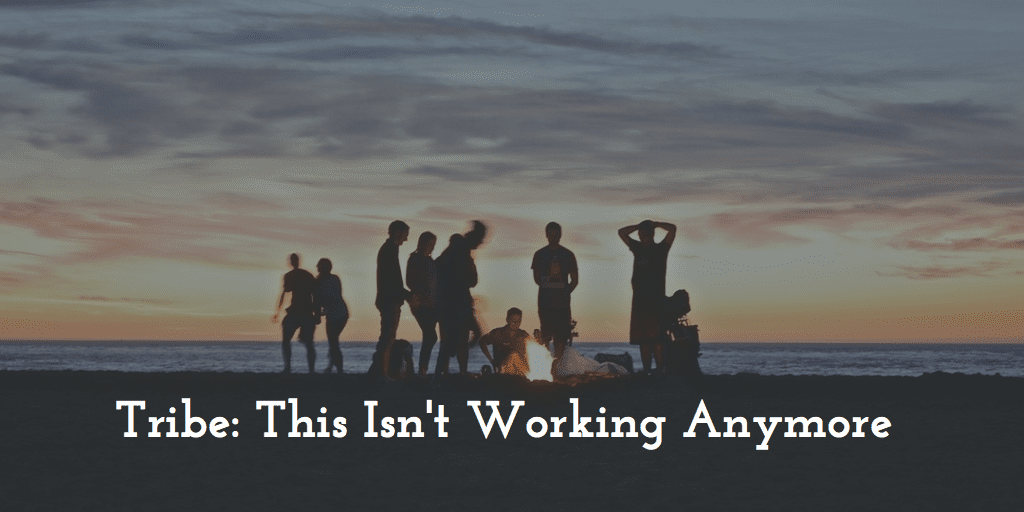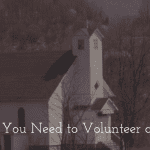 The alarm clock buzzes at 6 A.M. and from the moment your feet hit the floor you’re day runs at a frantic pace. You’ve got kids to dress, feed and drop off, meetings to make, and deadlines to fill.
The alarm clock buzzes at 6 A.M. and from the moment your feet hit the floor you’re day runs at a frantic pace. You’ve got kids to dress, feed and drop off, meetings to make, and deadlines to fill.
By the time the day is over, and dishes are put away, you don’t feel like doing anything else.
You feel guilty because you rarely have time for friends, or any larger commitments, but all you and your significant other feel like doing is checking out of reality with a little television.
At most, maybe you’ll live it up a little and make it a RedBox night. But then it’s back to bed, only to repeat the same day over and over and over and over.
And slowly, over time, your relationship network is getting thinner and thinner. You don’t have time for them and they don’t have time for you. You’ll call your old college friends occasionally. You’ll try and remember to post on their wall on Birthday’s, or send them the Christmas Card, but for the most part that’s about all you can do.
This isn’t working anymore.
Maybe I don’t need to tell you that. Maybe you already sense that ache in the pit of your stomach that comes along with the existential ache of living in the Suburbs with the American dream. Maybe you’re not noticing it at all. But I promise you, your kids will.
In the fall of 1986, Sebastian Junger set out as a young man to hitchhike the NorthWest United States. He was looking for adventure and couldn’t escape that something was missing in his safe suburban upbringing. So he took off with nothing but a backpack with a one man tent and a few groceries.
At one leg of his trip he was in Wyoming walking on the shoulder of the highway when he saw a disheveled looking man walking from the nearby town toward him. Junger said that he was obviously a working class kind of guy, greasy and wearing a worn down union uniform, and while he didn’t look unfriendly, Junger was young and alone and so he watched him like a hawk as he walked a good mile toward him.
When the man got there, he asked Sebastian where he was going, “California” he replied quickly.
“How much food you got?”
And finally Junger begin to surmise what was happening. This guy was hungry, and while Junger was willing to share his food with anyone, he didn’t know this man from Adam and the more he looked him over the more worried he was that he was about to be robbed.
So he lied.
He told the man that he only had a little cheese.
And what happened next changed the trajectory of Junger’s life.
The man told him that he was homeless, living in his car and that every day he walked 3 miles to a local coal mine to see if he could do any fill in work. Today he wasn’t needed, so he said “I wont be needing this.” And he pulled out his lunchbox and handed Sebastian Junger his bologna sandwich and chips, and then walked away.
Here’s how Junger describes that moment:
I thought about that man for the rest of my trip. I thought about him for the rest of my life. He’d been generous, yes, but lots of people are generous; what made him different was the fact that he’d taken responsibility for me. He’d spotted me from town and walked half a mile out a highway to make sure I was okay.
So begins the New York Times Best Selling book Tribes by Sebastian Junger. A book about why we need deeper community than the American Dream has given us, and how our lack of it is behind so many of the problems we face in the West.
I want to spend the next several posts reviewing and interacting with this book, but for now let me just say that if you are in church leadership I highly recommend reading this. I think Junger has his finger on the pulse of much of what ails churches in America, namely that we aren’t very good at being the church.
With all the busy, hectic, schedules we all have, we are slowly losing our ability to take care of each other. Something’s got to give.
This isn’t working anymore.












